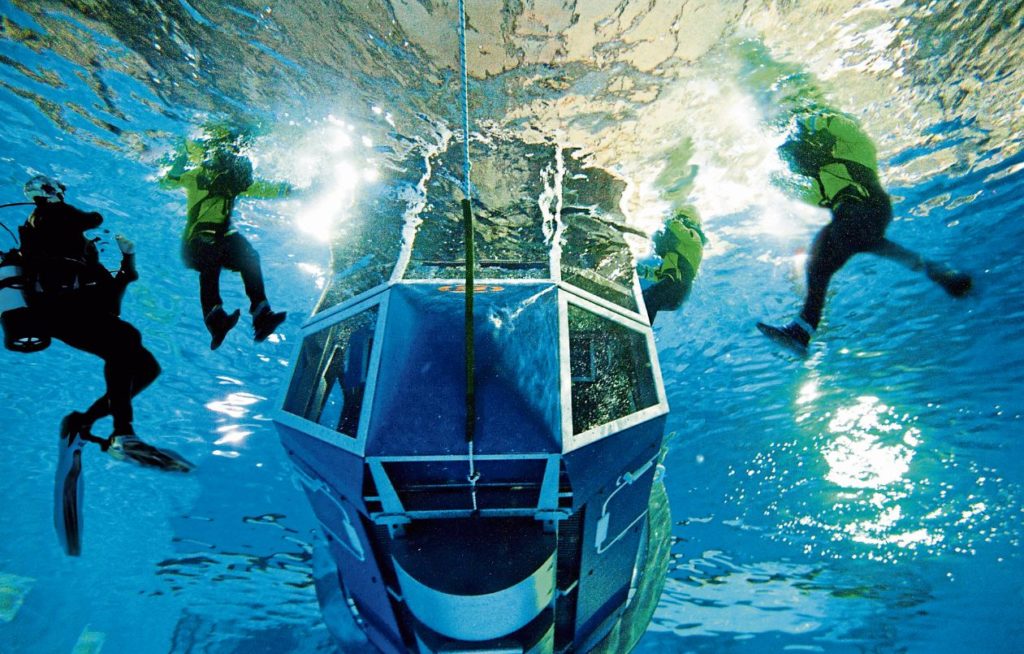
Private-equity house Blue Water Energy opened its doors a decade ago at a time when the North Sea was still enjoying the longest bull run in its history and Big Wind was just about finding its offshore feet.
Its driving force was and remains Graeme Sword, by then already well known in oil and gas circles. He was also keenly watching the emergence of low-carbon energy and looking for opportunities.
Blue Water has had two funds. The first, spanning 2013-17, made mostly oil and gas-related investments. The second, covering 2018-onwards demonstrates a big shift towards low carbon.
There are currently 23 companies in its portfolio and they fall into three broad categories: exploration and production companies, supply-chain, plus storage and logistics, primarily of refined products. Each sub-set has a transition relevance.
There are few PE players in energy with the experience that sits within Blue Water.
That experience is a crucial asset and it has played a major role in enabling the firm to work successfully through the third and fourth oil downturns, into the Covid crisis and, increasingly, grasp the accelerating energy transition.
“But we believe there is still value in E&P even though it is more difficult to raise capital, with quite a high barrier to cross,” said Sword, reflecting on the impacts of a triple whammy that isn’t over yet.
“Recently however, with the Chrysaor – Premier Oil deal and NEO buying Exxon’s UK business, there are signs of upstream deal activity starting to happen again. The theme there will be companies looking to achieve scale, with particular focus on cashflow from production.
“We’re still very focused on our storage and logistics strategy. The theme there is to try to connect areas of supply, notably the Middle East and Africa.
“The activity area where we have made real change is oilfield services. It was the part of the energy services market that was hit hardest during the third and fourth oil downturns.
“There was over-capacity and that led to a lot of pricing pressure. And so we’re adjusting that part of the business and increasingly want to be invested in companies providing services to infrastructure, such as px Group.
“We’re focused more on companies with a technology and transition angle and are less interested in firms that are dependent on upstream drilling for their revenues.”
Sword’s view is that Blue Water came through 2020 well with only two “minor covenant breaches” to repair in its 23-strong brood of firms.
“It proved to be a pretty robust portfolio from a liquidity perspective, but the question became how we were going to grow equity value,” he said.
“Our view was that we needed to have more scale and so the theme last year was looking for complementary acquisitions, those that had the potential to enable an expanded product or service or geographic offering to firms already in the portfolio. Also, were there combinations with public companies that we should explore?
“An obvious challenge last year was that it was very easy to have conversations via Zoom or whatever, but it was much more difficult to get into a deal-making and execution process.
“Thankfully, earlier this year, we managed to get three signed in a week.”
They are:
• Kentech has made a major acquisition from SNC-Lavalin; namely people and assets from Kentz and other energy services businesses in the group;
• 3t Energy Group has made a transformational purchase from Petrofac covering the latter’s UK training centres;
• And a valve-related business in the US that is complementary with an existing company in the portfolio but which is currently subject to an NDA.
In terms of the transition, which are Blue Water’s stars?
Unsurprisingly, E&P companies get the first mention and especially Siccar Point Energy, which has arguably the highest quality portfolio of any independent on the UKCS in terms of production and future development assets.
Because of this, it looks set to play an important role in the way oil and gas is produced from the North Sea henceforth.
As for the supply-chain there are three that Sword is quick to highlight: “We have a business in Argentina called Galileo Gas Technology. It’s very topical as oil and gas companies look to reduce gas flare emissions. It has compact plant that enables gas that would otherwise be flared to be converted to LNG for ease of transportation and use.
“The second is px Group, which has significant Aberdeen connections, including Geoff Holmes as its CEO, Gary Lewis as strategy director, Mark Hobbs, ex-Apache and now MD, offshore oil and gas; plus Ray Riddoch, who has joined its board.”
Px operates oil and gas assets on behalf of licence holders and owns Saltend Chemicals Park on Humberside, where Equinor is setting up its North Sea hydrogen project. Px is to operate low-carbon assets too.
Sword’s third pick is training provider 3t, which has made great strides towards transition and is now ranked number two in the world for offshore wind training.
But it’s not just about energy transition; good old fashioned diversification is in the sights too.
“We have Authentix,” Sword said. “It started out by putting chemical markers into fuels to enable tracking but is now expanding into other sectors, including marking currencies, pharma products and branded goods based on a product originally developed for the oil industry.
“That’s important as it shows how products and systems developed initially for the oil and gas sector can be successfully spun out into other industry areas.
“We want to accelerate this sort of thing.”
Needless to say, Sword and his team are engaged in conversations that could lead to further deals.
He said: “We’d like to think that the next three or so will come through very shortly, traditional oil and gas and transition-focused.
“There is no doubt that things are now moving at pace.”
Recommended for you

 © **Please add details
© **Please add details